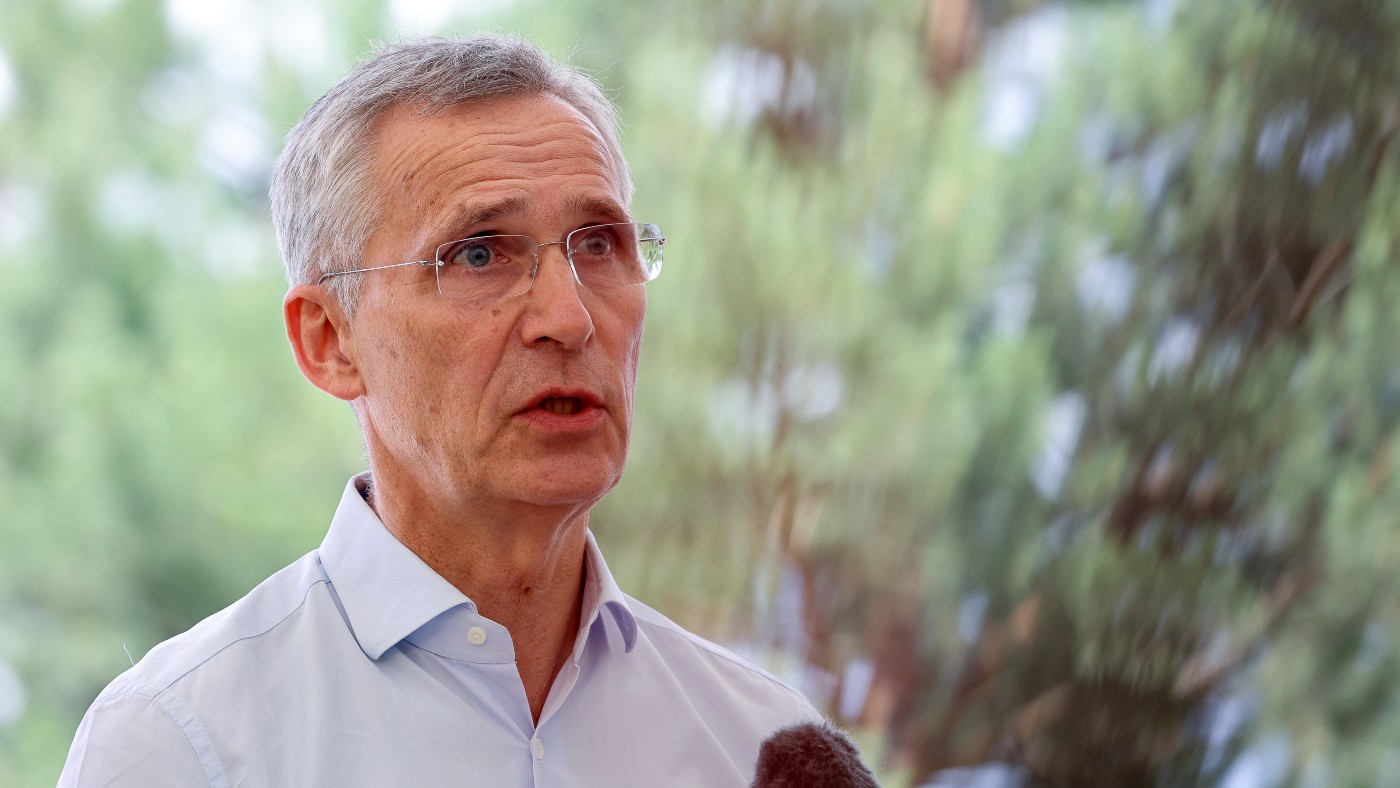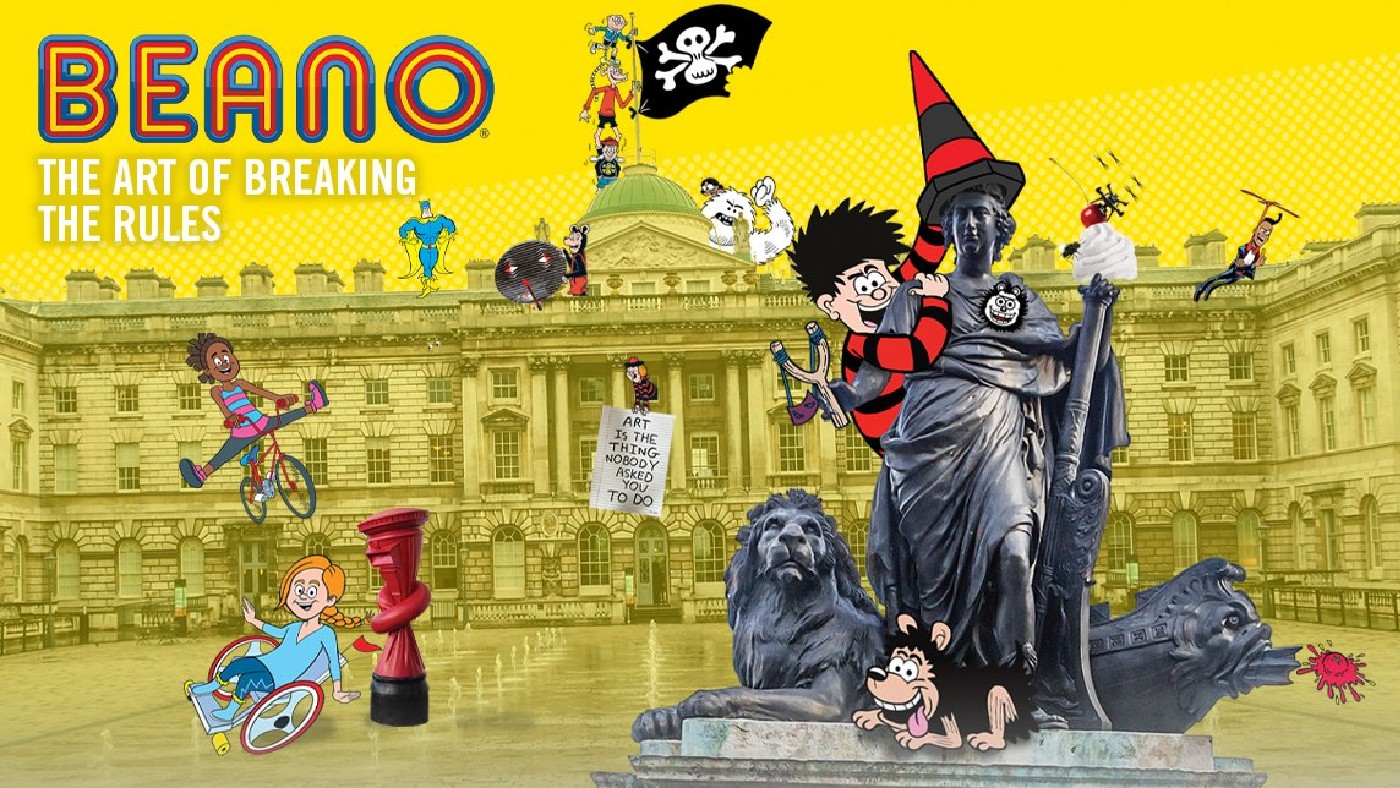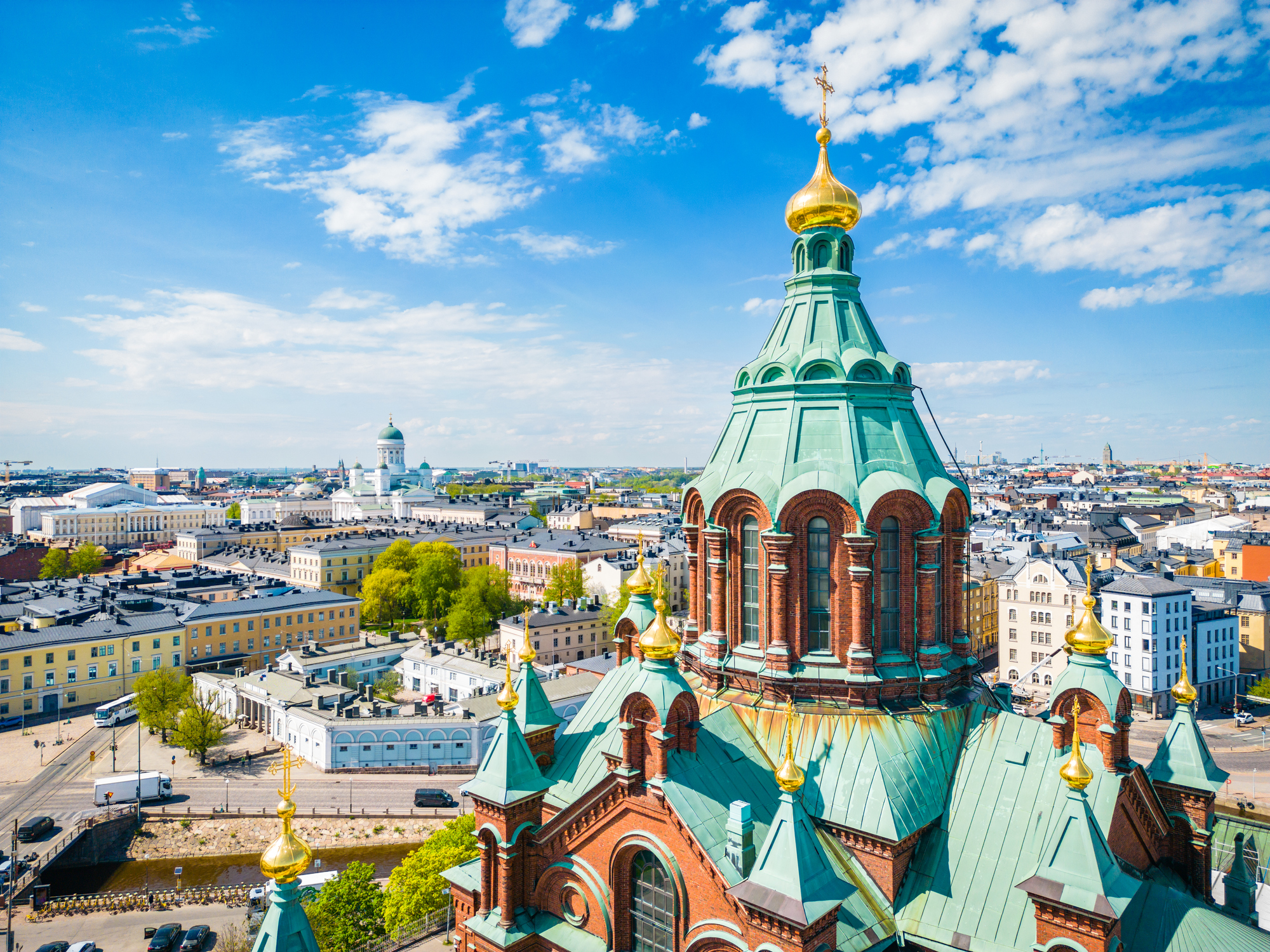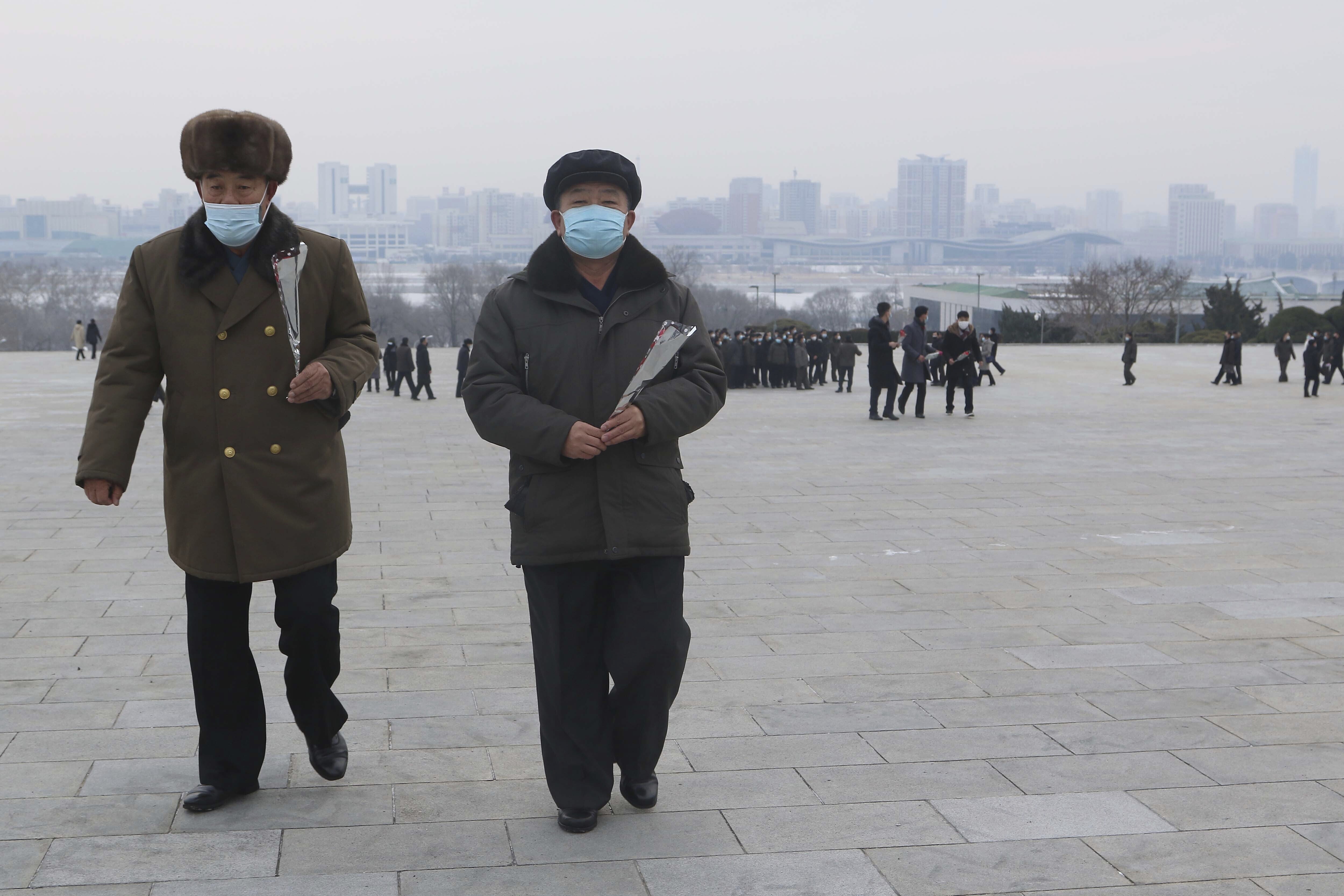‘Today’s political revolutions are powered by the old’
Your digest of analysis and commentary from the British and international press

A free daily email with the biggest news stories of the day – and the best features from TheWeek.com
You are now subscribed
Your newsletter sign-up was successful
1. Baby boomers are building a grey utopia
James Marriott in The Times
on geriatric power
“If you are young, you are living in an old person’s world,” writes James Marriott in The Times. “The political revolutions of the Sixties were the work of the young. Today they are powered by the old,” he continues. “Brexit and the victories of Boris Johnson and Donald Trump were all driven by older voters,” writes Marriott. “The reason our present culture war grinds on so bitterly and so interminably is because it is a social revolution of the young frustrated by demographics and economics.” The real “social revolution” is our slow transformation into a gradually ageing society: one which could help to usher in “a sort of tranquil, grey utopia”. We are seeing an “‘oldquake’ equivalent to the youthquake of the Sixties; though this revolution is quieter, less remarked upon by the media and, presumably, involves less free love”.
The Week
Escape your echo chamber. Get the facts behind the news, plus analysis from multiple perspectives.

Sign up for The Week's Free Newsletters
From our morning news briefing to a weekly Good News Newsletter, get the best of The Week delivered directly to your inbox.
From our morning news briefing to a weekly Good News Newsletter, get the best of The Week delivered directly to your inbox.
2. What a Wuhan lab leak would really mean
Ian Birrell in UnHerd
on a dismissed theory
“It has taken 17 months since the new coronavirus supposedly erupted, but the lab leak hypothesis has finally come in from the cold,” writes Ian Birrell in UnHerd. “But what would it mean if the lab leak hypotheses proved correct?” he asks. Of course, it would be “uncomfortable” for the Chinese Communist Party, “which would be guilty of overseeing arguably the biggest cover-up in history of an event that caused economic chaos, millions of deaths and misery around the world”, but it would also “shake science to its foundations for carrying out risky research” and then “collaborating in an epic whitewash”. And it would certainly “challenge a media that meekly accepted the establishment view rather than doing its job of asking difficult questions – a failure even more serious than the Iraq War intelligence debacle”.
A free daily email with the biggest news stories of the day – and the best features from TheWeek.com
3. Dominic Cummings’s evidence has fired up cabinet tensions
Katy Balls in the i newspaper
on No. 10’s heir
Ahead of Dominic Cummings’s appearance at an explosive parliamentary committee hearing “aides in Downing Street were braced for a difficult day”, writes Katy Balls in the i newspaper. So “the colour and the detail – not to mention the length” of his long testimony “meant that this wasn’t the anti-climax No. 10 had hoped for”. It has certainly “stoked cabinet tensions,” Balls writes, with Matt Hancock emerging as “the most attacked whereas Rishi Sunak received the most praise”, leading to “whispers that Cummings could be hoping the chancellor makes it to No. 10, and wants to join him there”. For Boris Johnson, the “reasonable worst-case scenario is that these allegations linger in people’s minds – and the next time things go wrong for the prime minister, the public proves much less forgiving”.
4. Why commuters won’t easily be lured back to the office
Joshua Chaffin in the Financial Times
on depressing commutes
“Every commuter has their lament,” writes Joshua Chaffin in the Financial Times. “What is different now is the wider circumstance. For the longest time, commuters have schlepped into the office because they had no choice.” The pandemic, however, has changed that. More amenities of the kind popularised by Google and Facebook may tempt some workers back, but it overlooks those who “care little about free candy or a ping-pong table at the office”. “For them – and me – the great disincentive to returning to the office is the commute,” writes Chaffin, who lives in suburban New Jersey and works in New York. He says that “my son, 11, told me that he did not feel he really knew me when I was rushing to and from the train each day”. “Soon the work-from-home movement may be crushed or co-opted, as most revolutions are,” writes Chaffin. “But for now, commuters have the power to demand change. They should use it.”
5. Every Belarusian journalist I know is in jail or exile
Alexey Kovalev in The New York Times
on press freedom
“In 2019, I was invited to speak at the press club in Minsk, Belarus’s capital, by Yuliya Slutskaya, a celebrated journalist with 30 years of experience,” writes Alexey Kovalev in The New York Times. “This past December, she was detained for ‘tax evasion’. She is still in custody. Then there’s Marina Zolotova”, the editor in chief of Tut.by, Belarus’s most popular independent news site, also dubiously charged with tax fraud – “now in pretrial detention”. There’s also the journalist Yan Avseyushkin, who “spent 15 days in jail after a ‘trial’ that lasted less than a minute”. He has now fled the country. “Those are just the journalists I know. Belarus is full of similarly distressing stories,” writes Kovalev. “What’s happening is not just about the rights of journalists in one country; it’s also about the criminalisation of a free press in parts of the world where it is the most vital.” The international community has an obligation to “stand up to leaders who intimidate and silence journalists”, he continues. “It would be calamitous if the pressure campaign on Mr Lukashenko – targeted sanctions, boycotts and condemnation – were to fade away.”
-
 How the FCC’s ‘equal time’ rule works
How the FCC’s ‘equal time’ rule worksIn the Spotlight The law is at the heart of the Colbert-CBS conflict
-
 What is the endgame in the DHS shutdown?
What is the endgame in the DHS shutdown?Today’s Big Question Democrats want to rein in ICE’s immigration crackdown
-
 ‘Poor time management isn’t just an inconvenience’
‘Poor time management isn’t just an inconvenience’Instant Opinion Opinion, comment and editorials of the day
-
 ‘Irony’ as Zoom calls staff back to office
‘Irony’ as Zoom calls staff back to officefeature And other stories from the stranger side of life
-
 The U.S. veterinarian shortage crisis
The U.S. veterinarian shortage crisisSpeed Read With an anticipated shortage of 15,000 vets by 2030, it will be harder to get care for pets
-
 Nato warning over Wagner troops in Belarus
Nato warning over Wagner troops in BelarusSpeed Read Move of mercenary group into Russian neighbour has sparked fears of further trouble
-
 Company teaches mask-wearers to smile again
Company teaches mask-wearers to smile againfeature And other stories from the stranger side of life
-
 Beano comics sent to Australia
Beano comics sent to Australiafeature And other stories from the stranger side of life
-
 Global happiness has been 'remarkably resilient' over the past three years
Global happiness has been 'remarkably resilient' over the past three yearsfeature
-
 Ministers considered killing all cats during pandemic
Ministers considered killing all cats during pandemicfeature And other stories from the stranger side of life
-
 North Korea imposes 5-day lockdown on capital to fight 'respiratory illness'
North Korea imposes 5-day lockdown on capital to fight 'respiratory illness'Speed Read